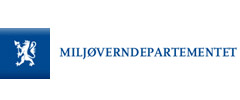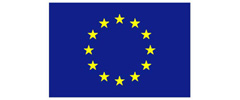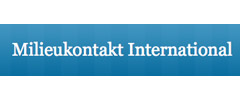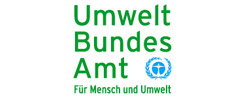Key gains and losses in the Rio+20 negotiations from the perspective of gender equality and women’s priorities
Coming to Rio, it was already clear that the outcome document would be weak. The draft document contained some very worrying language against human rights, women’s rights, indigenous people’s rights, and against the precautionary principle
06.07.2012 |WECF International
From that point of view, the final Rio+20 outcome document is better in many areas then at the start of the final round of negotiations, and it is certain that members of the Women’s major group have contributed to the “damage control”.
However, from a historic perspective, we have lost a lifetime chance to take bold steps to end poverty and environmental destruction, to protect the rights of the most vulnerable members of our societies, to take concrete measures to fully implement women’s rights and women’s leadership. We now risk increased poverty, inequities and irreversible environmental damage. This is not the future we want, nor the future we need. See our position statement on the final Rio+20 outcome document here (in English, Spanish, Portuguese, French, German and Dutch).
1. Women’s rights under attack at Rio+20 !
Women’s rights: The Vatican/Holy See attacked women’s rights, in particular reproductive rights, which in the end with support from a groups of Catholic and Islamic influenced countries were deleted from the final document. This is a great loss, as progress had been made on this issue earlier at the CPD in May 2012, and in previous years. At Rio+20 these essential rights for women were rolled back. The Vatican really should not have this influential role in the UN, it is time their observer status is recalled. Unfortunately, they have to many countries hiding behind the Vatican, …still, despite the recent discoveries of the hundred thousand cases of child abuse by catholic church leaders.
The only positive note is that in the closing plenary on Friday night, 22 of June, Iceland and Norway commented that they were very disappointed regarding the omission of reproductive rights, and that these rights are not negotiable, -- this was the only intervention which received a strong applause from the participants – and not just from the civil society back seats!
2. Trade against women’s rights and health !
Trade: Gains have been achieved on trade. The terrible proposal by the US to impose WTO rules on any Sustainable Development policy, –which would have made it impossible for countries to apply the precautionary principle, to use product labelling and to protect amongst others small (women) farmers from harmful imports – was deleted from the final version of the document. Also positive is that the language on trade in medicines has survived in section on health the final document. These have been a good exercise in damage control.
3. Gender equality and women’s empowerment – some small steps forward!
Gender equality and women’s empowerment: Overall the references to the need for women’s leadership and the importance of women regarding specific areas such as water, food security, are positive. In particular the sentence on the benefits of national measures to reach gender parity is great, it means we can now call on our governments to use instruments such as quota to help achieve 50% women in leadership positions!! (gender parity is 50%). The women’s major group had called to support Iceland’s proposal on concrete targets and timelines, which unfortunately was deleted.
4. The human right to water, sanitation and food – defended !
Water and food: the language on the human right to food was greatly improved. The language on the human right to water and sanitation, which Canada had opposed, has also improved, and is now clearly agreed on in the Rio+20 outcome document.
5. Technology assessment – acknowledged but too weak !
Technology: the technology section now calls on the Secretary General to initiate work on technology assessment, this has been strongly supported by the Women’s Major Group, looking back at the devastating lessons learned from asbestos, lead, nuclear, DDT and other pesticides – where large parts of populations were exposed and became ill – because the technologies were not assessed on health risks and social economic costs. The language on technology assessment is still far too weak, but it's a first step in the right direction, in particular developing countries (and of course future generations) should benefit from this.
6. Future Generations: no voice !
Future Generations: the proposed high commissioner for future generations was deleted from the final version of the Rio+20 outcome document, this is a great loss for us all.
7. Radioactive pollution: hushed and hidden !
Radioactive pollution: is not mentioned with a word in the Rio+20 outcome document, even though after Chernobyl, Fukushima and the many other accidents (3-mile-island, Tricastin, Asse, Central Asia etc) no-body can ignore the immense health risks for current and future generations and the unacceptable economic costs and indirect subsidies for the nuclear industry.
See the Women’s position statement for other issues including energy, climate, green economy, mining etc.
Related News
Meet the Winners of the Gender Just Climate Solutions Award at COP24
On the 70th anniversary of the Universal Declaration of Human Rights, we awarded Gender Just Climate Solutions Winners at the climate negotiations in Katowice, Poland
11.12.2018
Invitation: Gender Just Climate Solutions Award 2018
10 December, COP24 Katowice
04.12.2018
Getting to the Future We Want
4-7 November, Brussels: European Environmental Bureau’s (EEB) Annual Conference
12.11.2018
GoodFood4All
WECF and partners all over Europe start GoodFood4All Campaign
06.11.2018
#Ruralwomen: join our Women2030 campaign!
15.10.2018






































